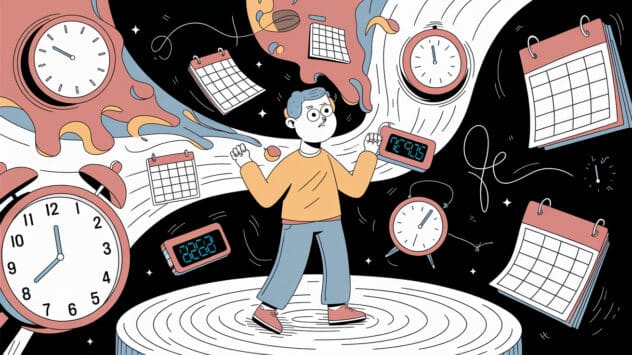ChatGPT in Relationships: It’s Terminal
Relationships are messy at the best of times—it’s like trying to assemble furniture with missing screws. Add ChatGPT in relationships, and suddenly you’re not just debating who left the milk out; you’re arguing over which AI-generated advice is more valid.
Recently, during a disagreement with my neurodivergent ex, we skipped the usual back-and-forth texts and turned to ChatGPT. Yes, we outsourced our emotions to AI. What started as an innocent attempt to make sense of things spiralled into a full-blown battle of my ChatGPT vs. his ChatGPT.
Now, let’s be clear: I’m not someone who blames easily. If anything, I overthink, second-guess myself, and sometimes avoid conflict altogether. My ex? He experiences emotions with incredible intensity, which is a hallmark of neurodivergence, and so he reacts accordingly. Me? I’m neurotypical, but that doesn’t mean I’m an emotional Zen master. I’m immature at times, defensive, and, to be honest, still working through my own baggage (hello, PTSD).
Unlock peak brain performance with science-backed biohacks. Join free now & get your guide for just £4.99 (45% off)!

With both of us bringing unique challenges to the table, we did what any reasonable couple in 2024 would do: we turned ChatGPT into our unofficial relationship therapist.
The Setup: My ChatGPT vs. Your ChatGPT
Imagine this: two people, both convinced they’re in the right, typing their truths into ChatGPT like it’s the Holy Grail of relationship advice.
For me, ChatGPT was my guide for introspection, helping me ask questions like “Am I being unreasonable? Could I have handled this better?” For him, ChatGPT was more of an ally and a way to articulate feelings that often felt too overwhelming to process in the moment. This wasn’t about being neurodivergent but rather a reflection of his deeply expressive and emotionally driven personality.
- His ChatGPT: “Your partner might be manipulative. Focus on setting boundaries and protecting your emotional energy.”
- My ChatGPT: “Your partner struggles with emotional dysregulation. Try strategies for managing conflict constructively.”
At this point, the disagreement wasn’t about us anymore—it was a duel between ChatGPT in relationships, each AI validating the narrative we’d fed it.
ChatGPT in Relationships: ND vs. NT Dynamics
Here’s where it gets interesting. Some Neurodivergent (ND) individuals face challenges like emotional dysregulation, impulsivity, or difficulty navigating intense feelings. These aren’t flaws—they’re part of a unique way of experiencing the world.
I crave clarity, logic, and a sense of calm in conflict. But that doesn’t mean I’m without my own challenges. Although I am neurotypical, my emotional immaturity shows up in defensiveness and a tendency to want things fixed right now. And let’s not forget that PTSD adds its own layer of overthinking and hypersensitivity to the mix.
In other words, we were perfectly mismatched for AI therapy. While his ChatGPT validated the intensity of his emotions, mine gently nudged me toward greater self-awareness. And somewhere in the middle was the truth, quietly begging for us to grow up.
Modern Arguments Meet AI: A Comedy of Errors
At one point, I caught myself quoting ChatGPT in the middle of an argument.
“Well, my ChatGPT says I need to focus on improving communication!”
“Oh yeah?” he shot back. “Mine says I need to set better boundaries—with you.”
It was absurd. Two adults, outsourcing our feelings to AI and debating whose ChatGPT in relationships was more “accurate.” Somewhere, the AI was probably rolling its virtual eyes.
What I Learned About ChatGPT in Relationships
Let’s pause for a moment and talk about what this ridiculous situation taught me:
- Bias in, Bias Out: ChatGPT is a mirror. If you feed it a skewed version of events, it’ll reflect back a biased solution.
- ND vs. NT Dynamics Need Real Dialogue: Neurodivergent partners might process emotions differently, but that doesn’t mean they’re wrong or “too much.” NT partners like me need to learn patience and emotional regulation too.
- AI Can’t Replace Real Conversations: ChatGPT in relationships can offer insights, but it’s no substitute for honest, vulnerable communication.
- Humour is Essential: If you can laugh at the absurdity of arguing via AI, you’re already halfway to solving the problem.
Why We’re Drawn to ChatGPT in Relationships
I get the appeal. ChatGPT doesn’t interrupt, raise its voice, or bring up things from two years ago. It’s neutral, validating, and oh-so-convenient. But that’s exactly why it’s tricky.
ChatGPT can’t read between the lines. It doesn’t ask, “Are you being fair?” or “Have you considered their perspective?” It simply spits out advice based on what you’ve told it. And if you’re not honest with yourself, you’re just using AI to reinforce your own biases.
In our case, ChatGPT wasn’t the problem.
We were. Instead of resolving the issue, we weaponised technology to score points against each other. The irony? Neither of us was “winning” this argument.
Humour, Growth, and Moving Forward
Here’s the thing about ChatGPT in relationships: it’s a reflection, not a solution. It can help you understand patterns or gain perspective, but it won’t do the hard work for you. Real growth comes from acknowledging your flaws, showing up for the hard conversations, and sometimes admitting you’re wrong (even when it stings).
And honestly? The ridiculousness of our situation taught me something important. Relationships—whether ND, NT, or somewhere in between—are about navigating the mess together. Technology might support that process, but it’s no substitute for the human effort of understanding and growth.
Final Thoughts
Relationships are complicated, and ChatGPT in relationships only adds another layer of absurdity to the mix. But at the end of the day, no AI can replace the power of owning your flaws, finding common ground, and maybe even laughing at how ridiculous you both can be.
Oh, and in case you’re wondering how it ended? Needless to say, our ChatGPTs both shut down and told us to grow up.
Join Our Community
Looking for more tips or a place to share your experiences? Join our Herbal Biohacker Forums to connect with others navigating social anxiety and neurodivergence. Together, we can create a space where everyone feels seen and supported.








Brilliant! Thanks for the laugh Adam!
This is worth reading. Awwn!
This was good
As a neurodivergent person, this hit so close to home. I’ve definitely turned to ChatGPT during moments of frustration in relationships, hoping for some clarity or validation. The way you highlighted how our biases shape the AI’s responses really resonated. It’s almost like seeing my own emotions reflected back but with a strange, unbiased twist. It’s also a reminder that communication, even with ourselves, matters so much more than I realise in the heat of the moment. Loved this post!
I mean… lool!